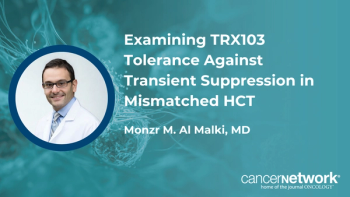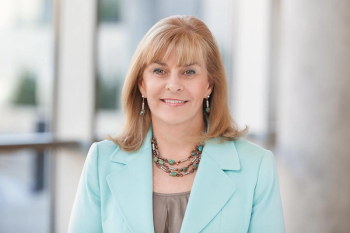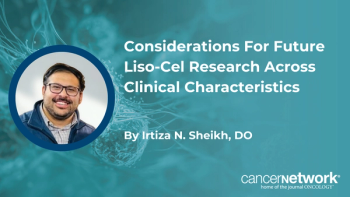
Oncology NEWS International
- Oncology NEWS International Vol 8 No 2
- Volume 8
- Issue 2
Antibody-Targeted Chemotherapy in Relapsed AML
SEATTLE-Preliminary phase II data show that CMA-676, an engineered human anti-CD33 antibody linked to calicheamicin, a potent cytotoxic agent, produced an objective response in 10 of 23 patients (43%) with acute myelogenous leukemia in first relapse after initial chemotherapy. Six responders went on to allogeneic bone marrow transplant.
SEATTLEPreliminary phase II data show that CMA-676, an engineered human anti-CD33 antibody linked to calicheamicin, a potent cytotoxic agent, produced an objective response in 10 of 23 patients (43%) with acute myelogenous leukemia in first relapse after initial chemotherapy. Six responders went on to allogeneic bone marrow transplant.
The side effects are mild compared to standard chemotherapy, Eric Sievers, MD, of Fred Hutchinson Cancer Research Center, said at ASH. The antibody was given as a single agent intravenously at a dose of 9 mg/m² every 2 weeks for two doses. The agent, from Wyeth-Ayerst Research (Radnor, PA), is being tested at 13 leading US leukemia centers.
Articles in this issue
about 27 years ago
Paclitaxel Plus Mitoxantrone for Poor-Prognosis Breast Cancerabout 27 years ago
Pros and Cons of Different Approaches to Chemoradiationabout 27 years ago
Less Cardiotoxicity With Liposomal Doxorubicinabout 27 years ago
Doxorubicin Appears to Change Natural History of HER-2+ Cancer’sNewsletter
Stay up to date on recent advances in the multidisciplinary approach to cancer.










































